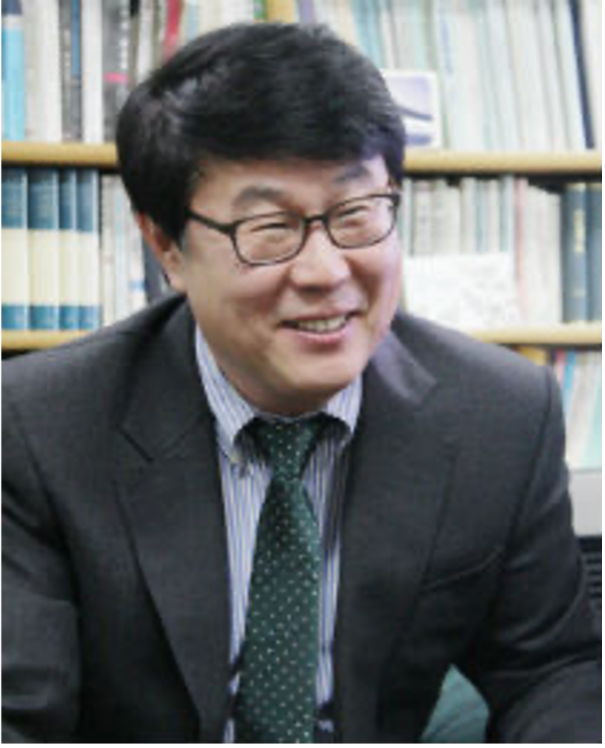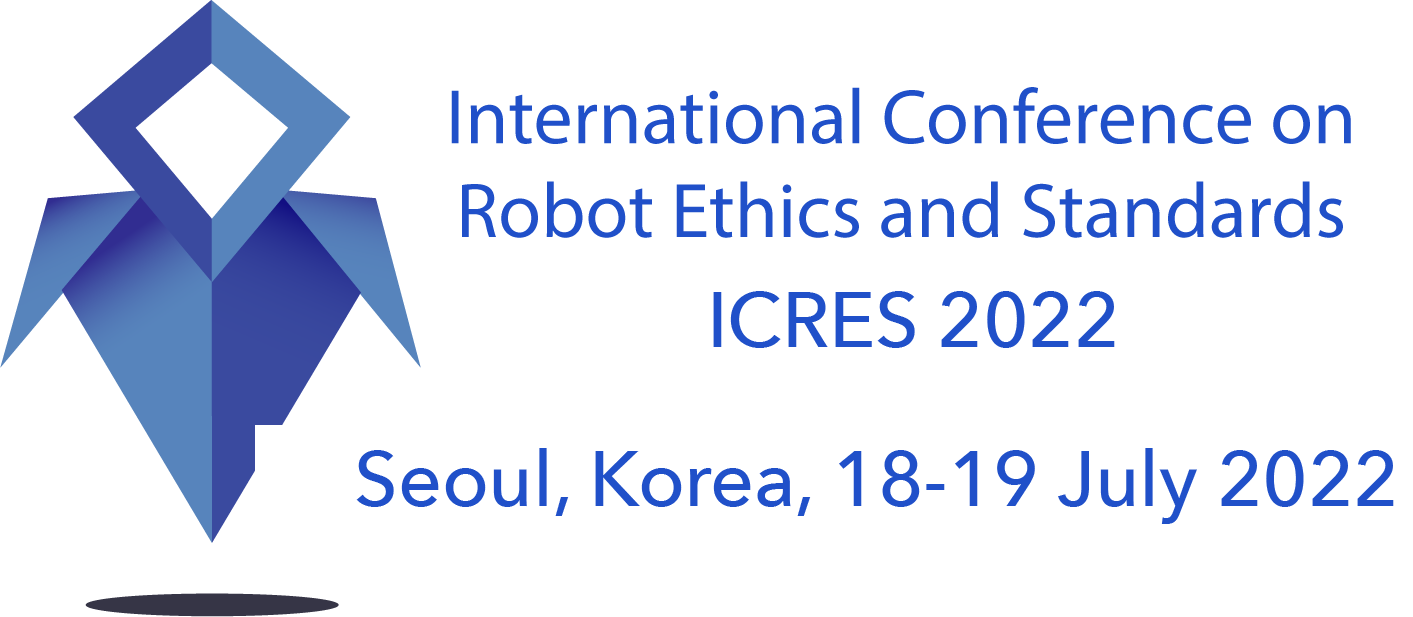
Sunyong Byun
Seoul National University of Education, South Korea
Biography
Dr. Sunyong Byun is currently a professor at Seoul National University of Education. He earned his BA and MA at the Seoul National University and PhD in philosophy at Karlsruhe University. He is currently serving as a president both at the Korean Society of Artificial Intelligence Ethics and the Korean Society of Ethics. He is also a director of several research centers: Artificial Intelligence Ethics Certification/Education Research Center, Center for AI Ethics at the Korean Artificial Intelligence Ethics Association, and the Center for Philosophy of Children. His research interests his fall under ethical issues and theories regarding the areas of culture, environment, food, bioethics and robots.
Title:
The moral issues on AI bias in data ethics
Abstract:
One of the ethical issues raised in recent years regarding big data, machine learning, and artificial intelligence is the issue of bias. Indeed, the problem of bias is often confused with the problem of prejudice (Voruteil) or stereotypes. If the former is a statistical and technical term, the latter is an ethical term. In the process of gathering and processing data, bias is always raised. In this lecture, I want to distinguish between the types of bias in data: the bias of the data itself and the bias of the data processing. In particular, data objectivity and fairness may be at odds with each other. Data objectivity presupposes correspondence between the data subject and the data. This objectivity can be secured only when subjective intervention is excluded in the process of data acquisition. Nevertheless, even if this modern mechanical objectivity is guaranteed, problems may arise that may not be fair. The objectivity of data will be discussed in the process of acquiring the data itself, but the fairness of data is more problematic in the use of data. Therefore, in terms of data ethics, the meanings of population bias, data bias, data objectivity, and data fairness should be clearly defined in the process of collecting and using big data.

Bert Hodges (watch intro.)
University of Connecticut
Biography
Bert H. Hodges received his Ph.D. in social psychology from Vanderbilt University and is Senior Research Scientist, Department of Psychological Sciences, University of Connecticut, and Emeritus Professor of Psychology, Gordon College, Wenham, MA. He has been a visiting professor at University of Southampton, University of Portsmouth, Rutgers University, and University of California Santa Barbara. He is a Fellow of the Society of Experimental Social Psychology, and the Center for the Ecological Study of Perception and Action, and a former President of the International Society for the Study of Interactivity, Language, and Cognition. His research is focused on developing and applying an ecological account of values in social psychology, language, and perception-action-cognition. He has given invited lectures in Denmark, Norway, Sweden, England, Russia, Poland, and the USA.
Title:
Beyond Goals, Rules, and Laws: Realizing Values in Action and Interaction
Abstract (click for the introduction)
All human actions and interactions are attempts to realize values, where values are understood not as personal preferences, social norms, or object qualities, but as boundary conditions of ecosystems that place demands on fields of actions within them. Values are neither subjective nor objective; rather, they are about relationships and the demands that ecosystems place on those relationships. Evidence suggests that a diverse array of values (e.g., truth, social solidarity, justice, flexibility, safety, comfort) work in a cooperative tension to guide actions. Values emerge as critical constraints on action that differ from goals, rules, and natural laws, yet provide the larger context in which all of these can function effectively. Values provide strong, flexible constraints that guide actions and interactions in ways that are necessarily shared, thus affording a basis for coordination, evaluation, criticism, and social learning. This means values have a fundamental role to play in all psychological phenomena.
Examples from perception-action skills, such as driving and carrying, are presented to illustrate how seemingly simple goal-directed actions emerge from a self-organizing concert of interdependent values. Similarly, skilled coordination tasks in social psychology (e.g., negotiating disagreements; synchrony and asynchrony in interactions; selectivity in social learning) demonstrate that scientific analyses that evaluate such skills in simplistic and moralistic ways often miss the richness and subtlety of the phenomena. For example, what is often described in terms of conformity may come to look more like a complex form of truth-telling. In decision-making, actions that are isolated from their larger social contexts are often described as biased and irrational, yet placed in a larger communal context, the actions appear sensitive, grounded, and prospective.
AI and robotics are generally understood as ways that humans can develop new systems and tools that extend and refine humans’ ability to engage in skilled physical and social interactions. This requires values-realizing judgments about the ends and means by which we work to help ourselves. Understanding better how the ordinary skilled actions of humans unfold may provide a stronger frame of reference for acting wisely in our interactions with information systems, robotic assistance, and other technological developments.

Sarah Fletcher
Cranfield University, UK
Biography
Sarah Fletcher is a Senior Research Fellow at Cranfield University in the UK. There she leads the Industrial Psychology and Human Factors (IPHF) research group, a team she established in 2012 specifically to meet growing needs for social science excellence in industry. She has been researching human-system interactions for 22 years aiming to develop safe and satisfying work processes that integrate people with advanced technologies and automation. She has led numerous human analysis R&D programmes in the UK and EU, specialising in methods to enhance human trust, acceptance, satisfaction, performance and safety behaviours in advanced systems and work processes. Her teaching and publications also focus on these topics, and she has developed new MSc modules on psychology, ergonomics, standards and ethics related to Robotics and Artificial Intelligence. She is a member of various national and international committees for the development of formal standards in robotics, robot ethics, human-systems ergonomics, and workplace safety, and has published a CENELEC Workshop Agreement (CWA) pre-normative standard on “A Methodology for Measurement of Worker Satisfaction in Automated Systems”.
Title:
Would you let a robot look after your baby? Presenting results of a survey to capture public opinion on the limitations of robot applications in the UK
Abstract:
Standards provide guidance, requirements and specifications that inform what should or should not be done. Ethics are principles that demarcate the boundaries of what is or is not considered acceptable. Standards are revised periodically to address changes in science and technology, and ethics also change over time as public opinion adapts to changes in society and culture. As robotics become ever-more a part of our everyday life the need for standardisation has grown, and in 2016 the British Standards Institute (BSI) published the world’s first formal standard on robot ethics BS 8611:2016 ‘Guide to the ethical design and application of robots and robotic systems’. As this standard is already being revised to address changes brought about by the ongoing rapid rise in robotics in society, it is important to ensure that the public opinion which informs current ethical norms is incorporated. To this end, an online survey has been conducted to capture public opinions on what is acceptable / unacceptable for future robot applications in six contexts where robotics could / will be applied: childcare, hospital surgery, elderly care, military combat, factory work, and as a human companion. Analysis of the data provided by 228 participants of varying age, experience and occupation reveals a snapshot of the public opinion that represents ethical boundaries in the UK at the current time, and this will be used to inform the BS 8611 revision. In this presentation the survey, results and implications will be presented and discussed.

Susan Postlethwaite
Manchester Metropolitan University, UK
Biography
Susan Postlethwaite is the newly appointed Professor of Fashion Technologies, Manchester Fashion Institute (MFI), Manchester Metropolitan University. She is an alumna of the prestigious Policy Fellowship programme at the Royal Academy of Engineering and co-investigator for AHRC funded Creative Clusters 5-year research project Future Fashion Factory: Digitally Enabled Design & Manufacture of Designer Products for Circular Economies. Susan sits on the editorial board of International Journal of Sustainable Fashion and Textiles and is an advisory board member of the Design and Communication in Higher Education Journal. She is also a member of AHRC Peer Review College. Susan is developing a living lab at MFI positioning the Fashion programme as research intensive, with a focus on examining key challenges to modernising garment manufacturing in the UK. Following a design career working for Ralph Lauren and Georgio Armani Susan taught at Central St Martins, was Director of the Fashion Futures Masters Programme at London College of Fashion and Senior Research Fellow in the Fashion Programme at the Royal College of Art where she began to develop a small and influential research group, prompted by RCA winning £ 3 million in funding for the Burberry Material Futures Research Group. Her research interests include new robotic and co-botic technologies and automation in manufacturing, micro factories, reshoring of the UK fashion design/manufacturing sector which includes focusing on Industry 4.0+ and 5.0 economic theory, policy inclusion and circular economy agendas engaging with regional, local and central government, and a marrying of co bots to digital desk top factory, digital twinning and designers bench systems. Developing designer- led practice research in transdisciplinary collaboration with social sciences, business development, and engineering to inform new methodological approaches underpins her research practice.
Title:
Exploring cobot technologies and agile tooling to aid creative garment making and improve ethics in clothing manufacture
Abstract:
Engineering innovation in the fashion sector has come from high volume, low-value production, where repetitive and highly automated tasks are undertaken by machines with minders/operators ‘feeding’ textiles and components to the machine. From a human perspective this work, whilst a long way from the image of manufacturing still held by the public as largely handmade, is very rapid, repetitive, and dull. The deskilling of the workforce is clear. Many labour practices in the garment industry in the UK verge on modern day slavery with workers underpaid and exploited in dangerous conditions. Internationally the situation can be much worse.
Design skills risk becoming redundant in the drive to make unsustainably large volumes of clothing. Fully automated systems can be seen to be driving the simplicity of garment shape and construction and data-driven high-volume production means manufacturers are happy to supply consumers with more of what they already own rather than risk new styles. Economies of scale will eventually mean fewer choices for consumers in this scenario. Conversely, the development of disruptive technologies like 3D weave and knit for micro-production and zero waste manufacture can mean close cooperation between designers, engineers, yarn producers, textile technologists and consumers and could revolutionise garment production and on-demand manufacturing. New, small scale, agile tools that are needed to support and facilitate a new, more ethical culture in garment manufacturing that focuses on upskilling workforces. Designing new cobot technologies will support the ambition for more meaningful and satisfying work whilst helping to solve the sustainability issues of over production.

Kathleen Richardson
De Montfort University
Biography
Kathleen Richardson is a Professor of Ethics and Culture of Robots and AI and her research explores relationship, love and sociality. Kathleen completed her PhD at the Department of Social Anthropology, University of Cambridge. Her fieldwork was an investigation of the making of robots in labs at the Massachusetts Institute of Technology. After her PhD Kathleen was a British Academy Postdoctoral Fellow (BAPDF), a position she held at the University College London. Kathleen’s postdoctoral work was an investigation into the therapeutic uses of robots for children with autism spectrum conditions. In 2013, she was part of the Digital Bridges Project, an innovative AHRC funded technology and arts collaboration between Watford Palace Theatre and the University of Cambridge. She has worked on several EU projects including DREAM project (Development of Robot-Enhance Therapy for Children with AutisM), REELER (Responsible Ethical Learning with Robotics) and is currently co-PI on TechEthos (Ethics for Technologies with High Socio-Economic Impact). She is author of two books: An Anthropology of Robots and AI: Annihilation Anxiety and Machines (2015), and Challenging Sociality: An Anthropology of Attachment, Autism and Robots (2018). She’s currently working on her third manuscript Sex Robots: The End of Love (forthcoming) that explores the destruction of love, empathy and attachment normalised through the convergence of pornography and technology shaping our intimate relations. In 2015 she launched the Campaign Against Sex Robots (now the Campaign Against Porn Robots) to draw attention to problematic effects on new technologies on human relations, and their potential impact to create new layers of inequalities between men and women and adults and children. She advocates a compassionate and violence free technology based on freedom ethics and is critical of coercive and violent models of human lived life that are transferred to the making of new technologies. Richardson has developed a theory of robotics inspired by anti-slavery abolitionist feminism.
Title:
Women, Ethics, Robots, AI and Data (WERAID) – How can we build the politics of love as we create new technologies?
Abstract
This talk will examine the making of representational technologies of the human (RTH) – a concept Richardson develops in her new book on sex robots (due 2023). RTH is a mimesis inspired concept and concerns those technological objects that aim to mimic and represent human beings: their bodies, experiences, and relationships. As humans embark on creating RTH in the form of robots and AI – what do the making of these technologies tell us about how we conceive of women, men and children and the relationships between them? To what extent do the values of love, empathy and attachment shape the technologies we produce? This talk will examine those RTH (and narratives of them) developed to be relational, sexual and therapeutic others, and consider if we should abandon or contract out these roles to machines (if we can at all), or in fact, do we need to develop a new set of ideas about technologies informed by the politics of love?

Randall Auxier
Southern Illinois University Carbondale, USA
Biography
Randall E. Auxier is a professor of philosophy and communication studies at Southern Illinois University Carbondale, a musician, environmental activist, union advocate, and candidate (2018) for the United States House of Representatives, nominated by the Green Party in the 12th Congressional District of Illinois. He is a radio host for WDBX Carbondale since 2001, a widely read author of popular philosophy, and also a co-founder and co-director of the AIPCT (The American Institute for Philosophical and Cultural Thought). Educated in the public schools of Memphis, Tennessee, he grew up during and was deeply affected by, the civil rights movement. He was one of the many students who were bused to integrated schools by court orders that resulted from Brown v. Board of Education. Auxier was in first grade when Martin Luther King Jr. was assassinated, and the event had a continual impact on him and the region he lived in. In philosophy, Auxier specializes in classical American thought, process metaphysics and theology, intensive logics, aesthetics, philosophical anthropology, and the philosophy of culture, of science, of religion, and of education. He teaches and writes on Giambattista Vico, Immanuel Kant, Georg Hegel, J.J. Bachofen, Charles Peirce, Henri Bergson, Josiah Royce, William James, John Dewey, Alfred North Whitehead, Ernst Cassirer, Susanne Langer, Charles Hartshorne, Jaakko Hintikka, Arthur Danto, and Umberto Eco..
Title:
The Virtues in the Virtual: Susanne Langer’s Projections and the Digital World
Abstract:
Susanne Langer developed a sophisticated theory regarding the human power to create, transport, and project symbols, using bodily feeling as the medium. This activity can be guided and formed into art, such that our way of feeling the world, which virtualizes it, is done in a way that facilitates later projections. We can call it “artistic synthesis.” In a way, the computer has become a medium that mirrors and facilitates the externalization of such processes, with such innovations as Augmented Reality (AR). With the virtual world of computers we have a “canvas” that will receive the semblance of artistic synthesis. In this paper I will adapt Langer’s theory of semblance/primary illusion to the medium of computer art, explaining some criteria for what would make for excellence in the creation of it. In particular I will examine video games, computer generated movie images, animation, AR, virtual robotics, and how the poetic arts are changed by writing on a computer. Arguably, humans have existed in an AR environment of a sort since we learned to substitute symbols for the things they present to us, but our power to make this substitution has grown beyond our imagining.

Rachid Alami
LAAS-CNRS
ANITI
Biography
Dr. Rachid Alami is Senior Scientist at LAAS-CNRS. He received an engineer diploma in computer science in 1978 from ENSEEIHT, a PhD in Robotics in 1983 from Institut National Polytechnique and an Habilitation HDR in 1996 from Paul Sabatier University He contributed and took important responsibilities in several national, European and international research and/or collaborative projects (EUREKA: FAMOS, AMR and I-ARES projects, ESPRIT: MARTHA, PROMotion, ECLA, IST: COMETS, IST FP6 projects: COGNIRON, URUS, PHRIENDS, and FP7 projects: CHRIS, SAPHARI, ARCAS, SPENCER, H2020: MuMMER , France: ARA, VAP-RISP for planetary rovers, PROMIP, several ANR projects).
His main research contributions fall in the fields of Robot Decisional and Control Architectures, Task and motion planning, multi-robot cooperation, and human-robot interaction. Rachid Alami is currently the head of the Robotics and Interactions group at LAAS. He is holding since 2019 the Academic Chair on Cognitive and Interactive Robotics at the Artificial and Natural Intelligence Toulouse Institute (ANITI)
Title:
Decisional issues for Human-Robot Collaboration
Abstract:
This talk will address some key decisional issues that are necessary for a cognitive and interactive robot which shares space and tasks with humans. We adopt a constructive approach based on the identification and the effective implementation of individual and collaborative skills. The system is comprehensive since it aims at dealing with a complete set of abilities articulated so that the robot controller is effectively able to conduct in a flexible and fluent manner a human-robot joint action seen as a collaborative problem solving and task achievement. These abilities include geometric reasoning and situation assessment based essentially on perspective-taking and affordances, management and exploitation of each agent (human and robot) knowledge in a separate cognitive model, human-aware task planning and interleaved execution of shared plans. We will also discuss the key issues linked to the pertinence and the acceptability by the human of the robot behaviour, and how this influence qualitatively the robot decisional, planning, control and communication processes.

Takayuki Kanda (watch intro.)
Kyoto University, Japan
Biography
Takayuki Kanda is a professor in Informatics at Kyoto University, Japan. He is also a Visiting Group Leader at ATR Intelligent Robotics and Communication Laboratories, Kyoto, Japan. He received his B. Eng, M. Eng, and Ph. D. degrees in computer science from Kyoto University, Kyoto, Japan, in 1998, 2000, and 2003, respectively. He is one of the starting members of Communication Robots project at ATR. He has developed a communication robot, Robovie, and applied it in daily situations, such as peer-tutor at elementary school and a museum exhibit guide. His research interests include human-robot interaction, interactive humanoid robots, and field trials.
Title:
Social robots in public space
Abstract:
Social robots are coming to appear in our daily lives. Yet, it is not as easy as one might imagine. We developed a human-like social robot, Robovie, and studied the way to make it serve for people in public space, such as a shopping mall. On the technical side, we developed a human-tracking sensor network, which enables us to robustly identify locations of pedestrians. Given that the robot was able to understand pedestrian behaviors, we studied various human-robot interaction in the real-world. We faced with many of difficulties. For instance, the robot failed to initiate interaction with a person, and it failed to coordinate with environments, like causing a congestion around it. Toward these problems, we have modeled various human interaction. Such models enabled the robot to better serve for individuals, and also enabled it to understand people’s crowd behavior, like congestion around the robot; however, it invited another new problem, robot abuse. I plan to talk about a couple of studies in this direction, hoping to provide an insight about near-future applications, research problems, and ethical issues about the social robots in public space in a near future.




